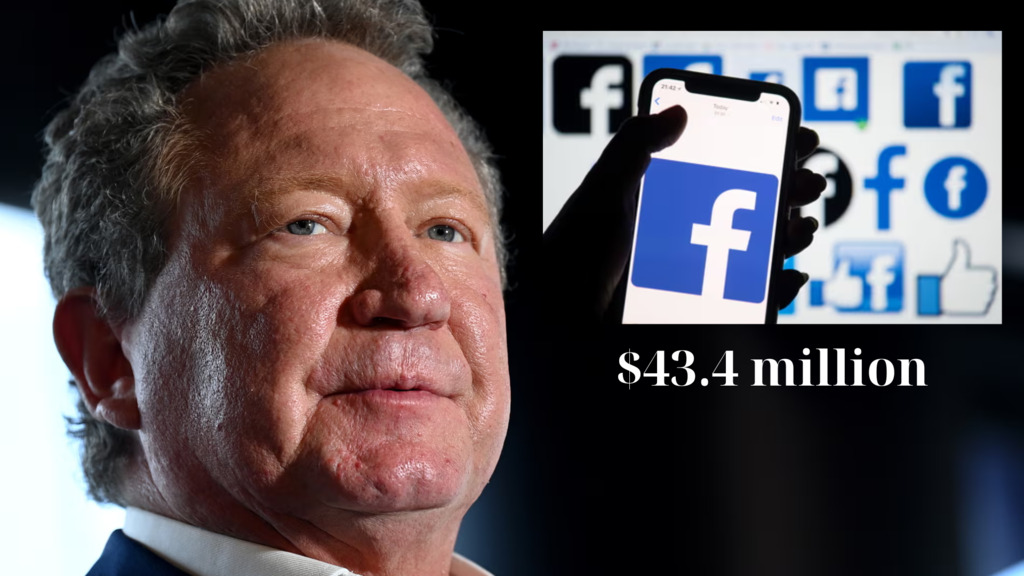The Australian mining magnate can try to prove that Meta was negligent in allowing scam ads on Facebook, judge says
A US judge has rejected Meta Platforms bid to dismiss a lawsuit by billionaire Australian mining magnate Andrew Forrest over scam Facebook advertisements that use his likeness to promote fake cryptocurrency and other fraudulent investments.
In a decision on Monday, US district judge Casey Pitts in San Jose, California, said Forrest could try to prove that Metas negligence in allowing the ads breached its duty to operate in a commercially reasonable manner.
Forrest can also try to prove that his name and likeness was misappropriated by Meta, and not just by fraudsters behind the bogus ads.
Andrew Forrest says Coalitions abandonment of 2030 emissions target would decimate economy
Read more
Dr Forrest claims that Meta profited more from ads that included his likeness than it would have if the ads had not, Pitts wrote.
This is enough to adequately plead that the alleged misappropriation was to Metas advantage.
Lawyers for Meta declined to comment on Tuesday.
The company, based in Palo Alto, California, had argued that Section 230 of the federal Communications Decency Act immunised it from liability as a publisher of third-party content.
But the judge said Forrests claims present a factual dispute regarding whether Metas ad systems were neutral tools that anyone could use (or misuse) or whether the tools themselves contributed to the content of the ads.
Forrest said more than 1,000 of the ads appeared on Facebook in Australia between April and November 2023, leading to millions of dollars in losses for victims.
The 62-year-old is executive chairman of iron ore producer Fortescue Metals Group, and with his family is worth $24.8bn (US$16.5bn), according to Forbes magazine.
In a statement, Forrest said Pitts decision was the first where a social media company was unable to invoke Section 230 immunity in a US civil case over its advertising business.
This is a crucial strategic victory in the battle to hold Facebook accountable, he said.
Forrest is seeking compensatory and punitive damages.
In April, prosecutors in Australia declined to pursue criminal charges that he brought against Meta in that country over scam cryptocurrency ads.
Forrest had sued under Australian laws that let individuals criminally prosecute foreign companies upon receiving prosecutors consent.
